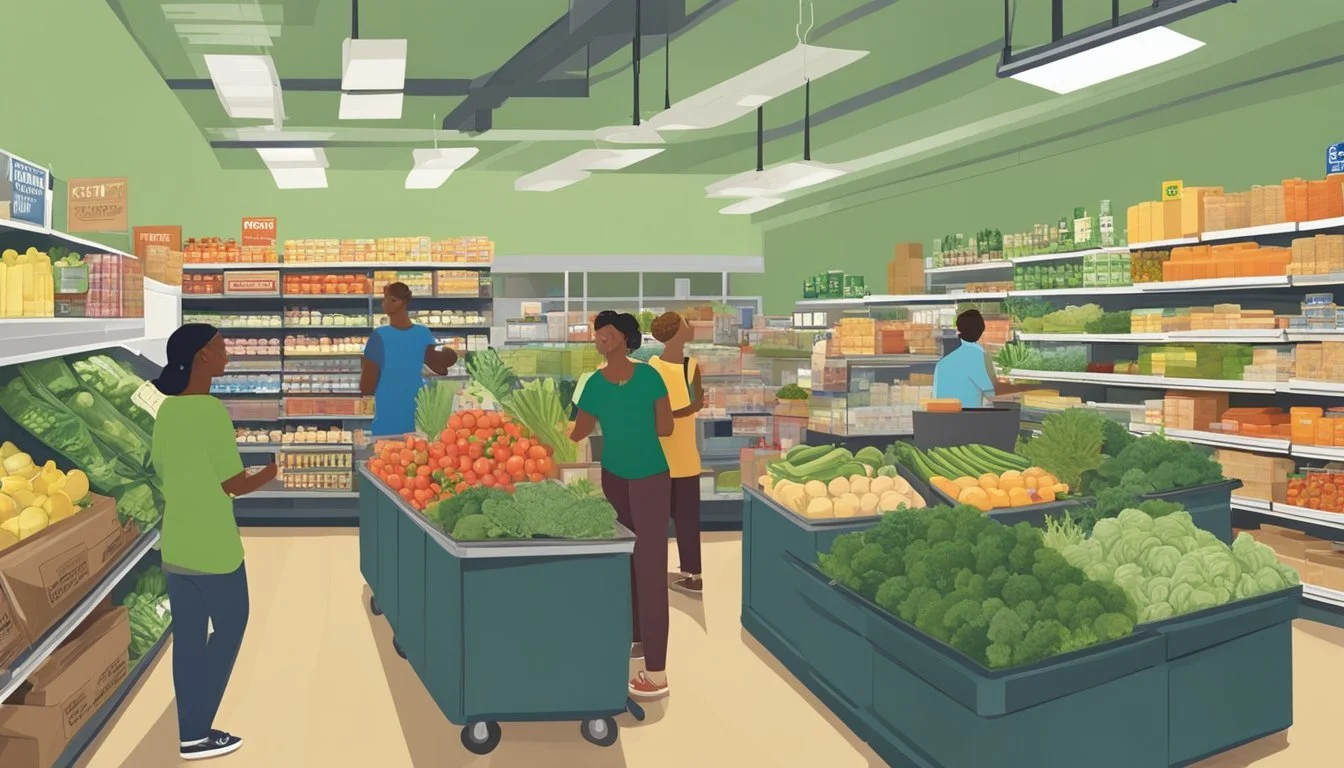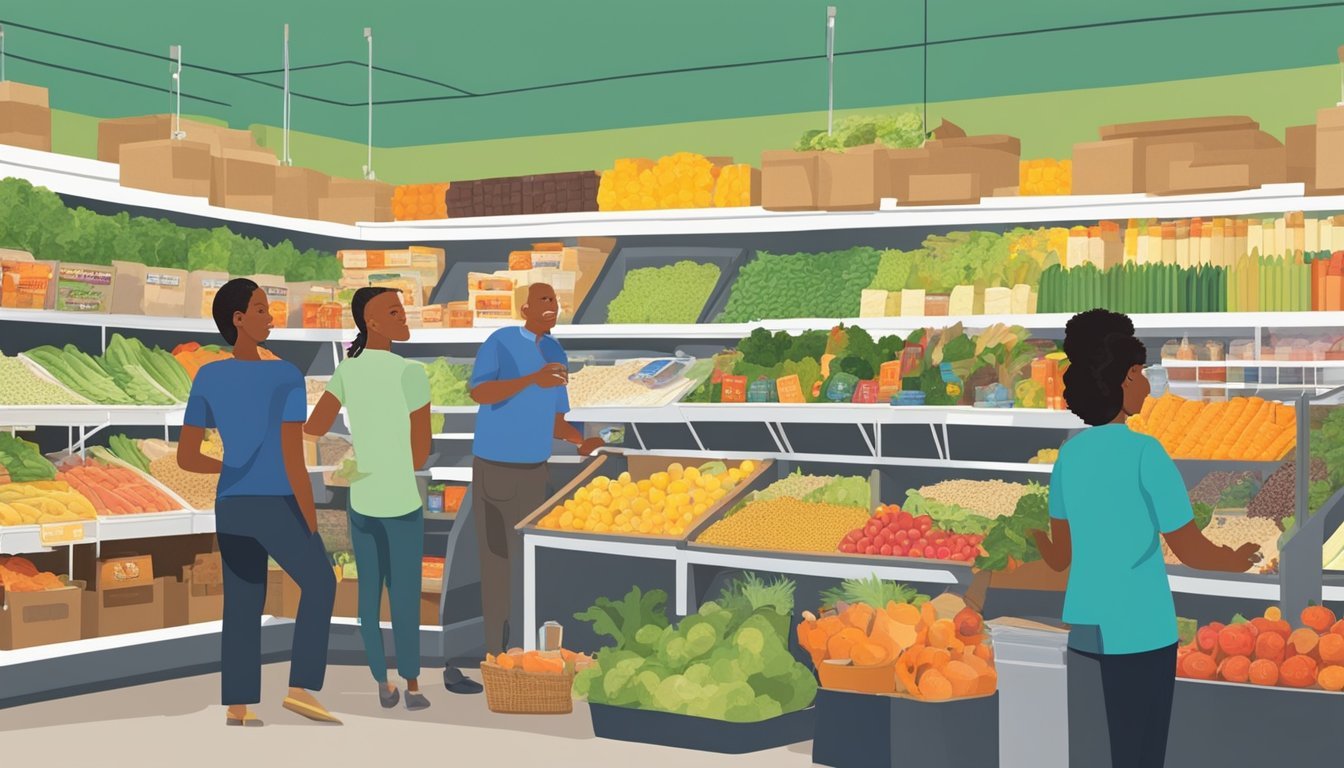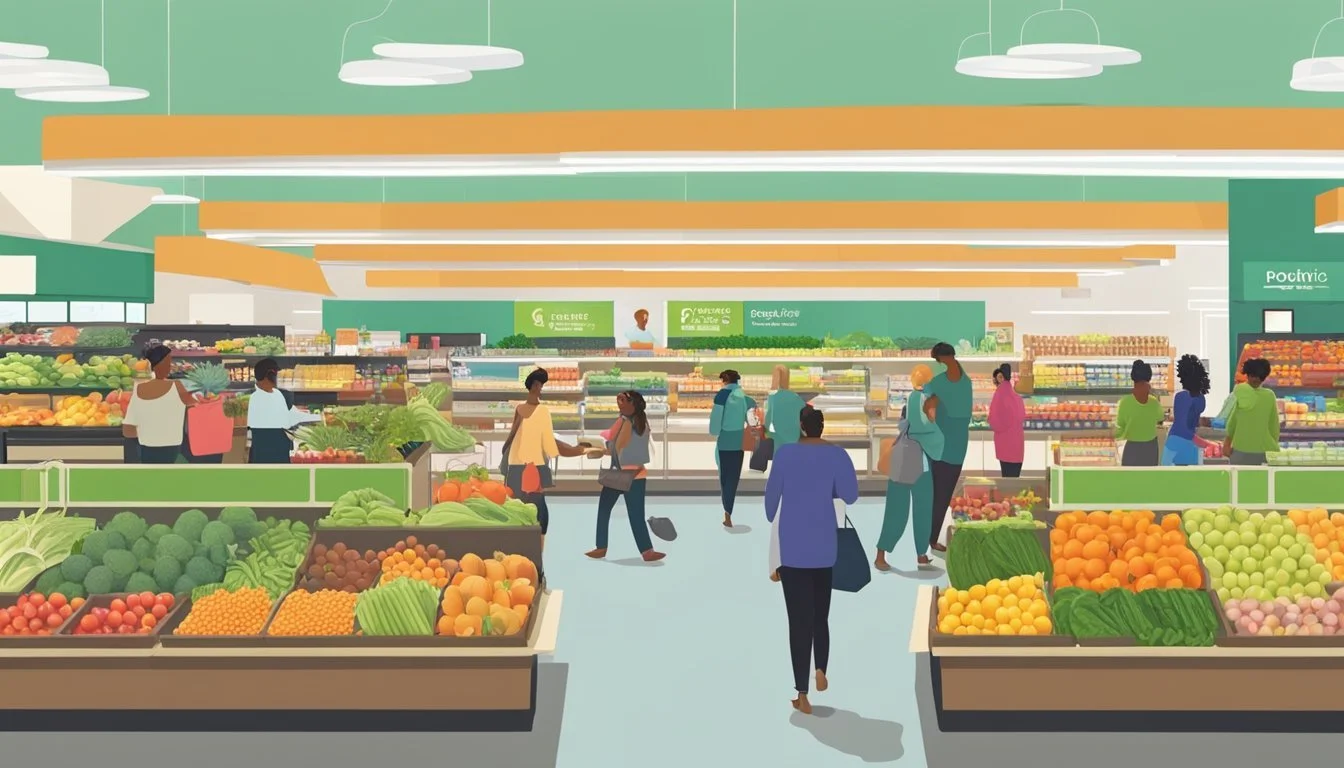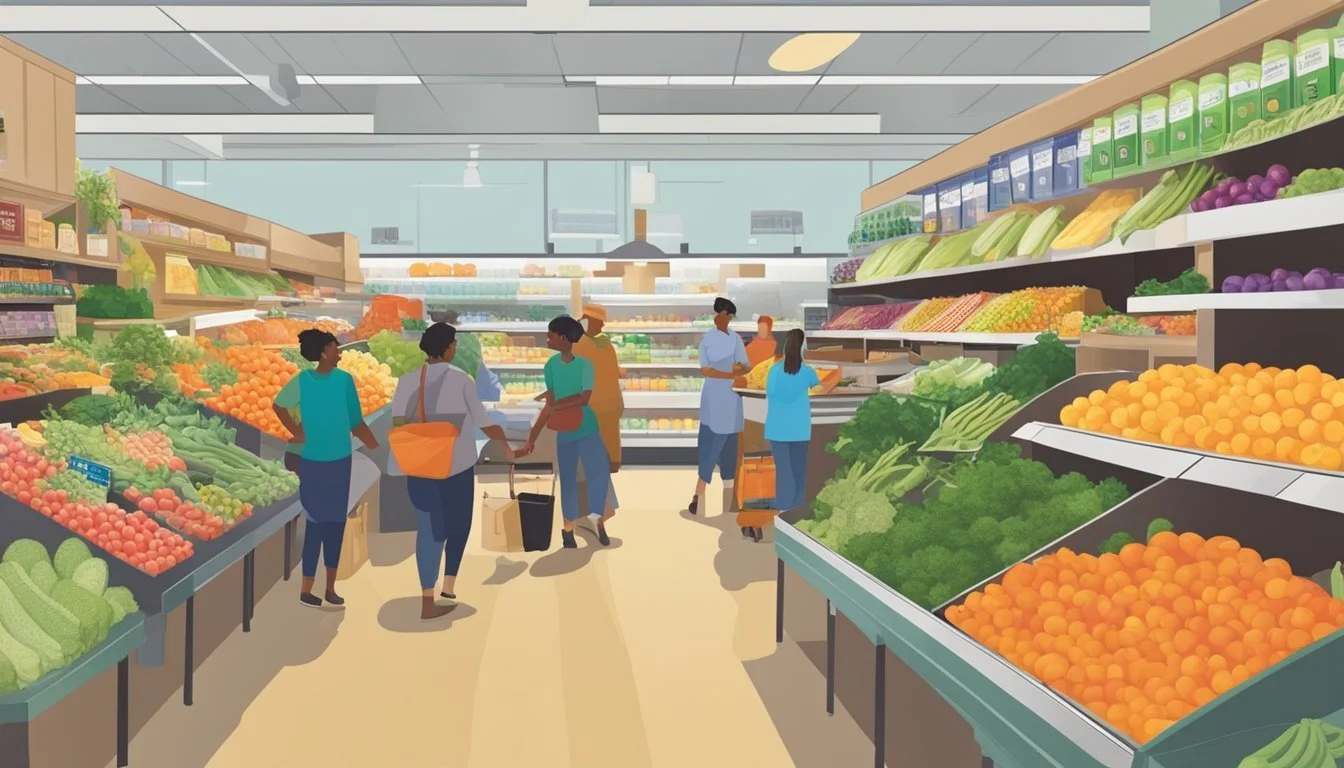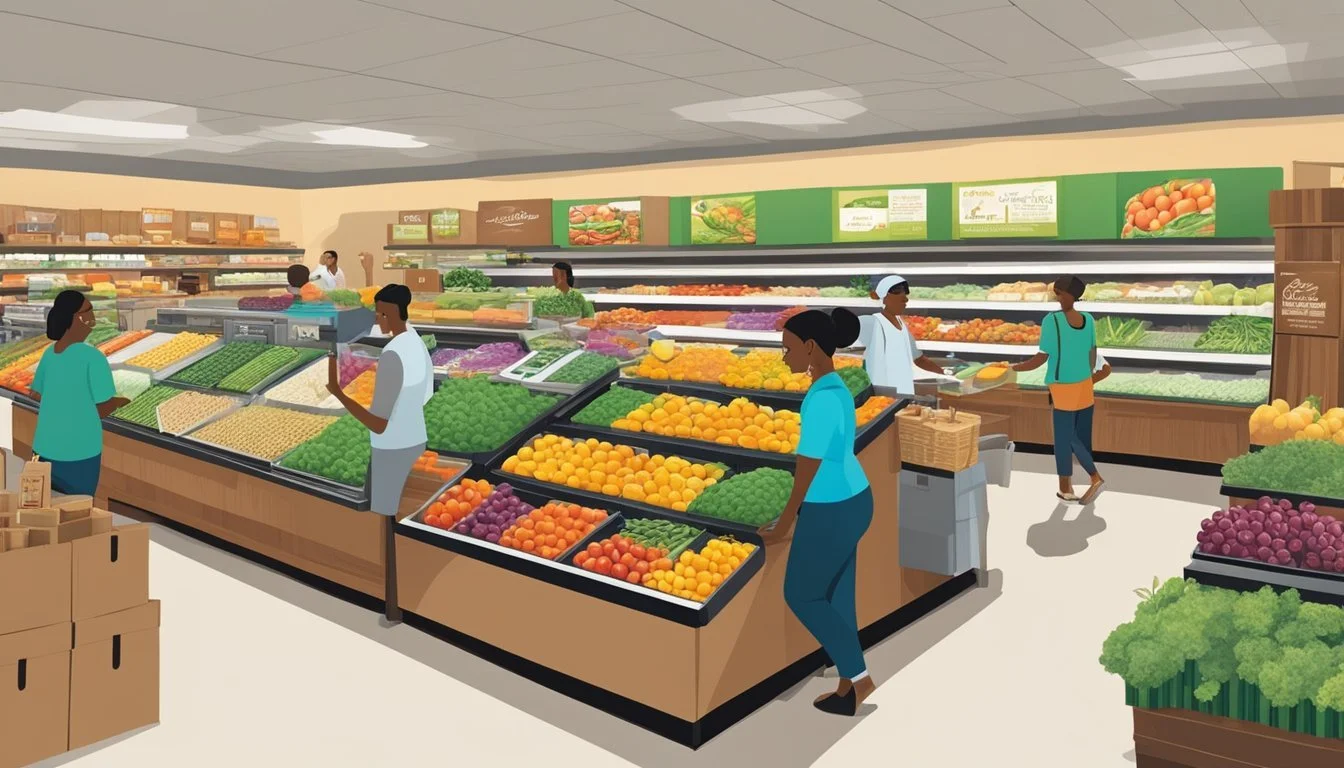Guide to Food Co-Ops in North Charleston, SC
Your Resource for Local, Community-Based Shopping
Food cooperatives are a cornerstone of community-focused living, offering a way for individuals to access a variety of local and organic products while supporting local economies. In North Charleston, South Carolina, the Park Circle Co-Op stands out as a prime example of such an establishment. This co-op provides a range of minimally processed and health-oriented food options, catering to consumers who value quality and sustainability.
North Charleston's food co-ops typically operate with a foundation of community member involvement, with many operating as buying clubs where people come together to purchase food and other goods in bulk. The Park Circle Co-Op, located on Durant Avenue, embodies this community spirit, fostering a local market atmosphere where organic and locally sourced ingredients are prioritized. This approach not only supports local farmers and producers but also encourages healthier eating habits among residents.
As food co-ops continue to thrive, they serve not only as a hub for purchasing fresh, locally sourced food but also as a place for like-minded individuals to connect. These co-ops benefit from a loyal customer base that values the co-op's role in social sustainability and economic resilience within North Charleston. The cooperative model's emphasis on fair pricing and food sourcing transparency is quickly elevating the importance of food co-ops in North Charleston's food ecosystem.
What Is a Food Co-op?
A food co-op is a grocery entity that operates on a cooperative model, meaning it’s owned and controlled by the community members who use its services. These members collectively influence the store's offerings and operations.
Co-op Principles
A food co-op is governed by several universal principles that distinguish it from traditional retail stores:
Voluntary and Open Membership: Co-ops are open to all individuals willing to accept the responsibilities of membership.
Democratic Member Control: One member equals one vote, ensuring an equitable say in decisions.
Members' Economic Participation: Members contribute equitably and control the capital of the cooperative.
Autonomy and Independence: Co-ops are autonomous, self-help organizations controlled by their members.
Education, Training, and Information: Co-ops provide education and training so members can contribute effectively.
Cooperation among Cooperatives: Co-ops serve their members most effectively by working together.
Concern for Community: Co-ops work for the sustainable development of their communities.
Benefits for Members
Members of a food co-op can expect to receive multiple benefits:
Savings on Purchases: Bulk buying and reduced overhead can result in savings passed on to members.
Quality Control: Members have a say in the selection of products, prioritizing quality and preference.
Local Economic Support: By prioritizing local goods, co-ops support local economies and reduce environmental impact.
Shared Knowledge and Education: Co-ops often provide resources and learning opportunities for members to make informed choices.
Joining a Food Co-op
When an individual decides to join a food co-op in North Charleston, SC, it involves a straightforward membership process. In return, members receive numerous benefits that enhance their shopping experience and contribute to their community.
Membership Process
The process to join a food co-op typically requires potential members to provide basic personal information, which typically includes their first name, last name, and a valid email address. An important step of the signup process is to agree to the co-op's Terms of Service and acknowledge the Google Privacy Policy, given that many co-ops use Google forms for their membership applications. To ensure the security and integrity of the process, a reCAPTCHA verification is often necessary to prevent automated signups.
Benefits of Signing Up
Once signed up, members of a food co-op often enjoy a diverse set of benefits, including:
Access to fresh, locally sourced produce and products.
Discounted pricing on food items and goods compared to non-members.
The privilege to participate in the governance of the co-op, including voting on important matters.
By becoming a part of a food co-op, members directly support local farmers and producers while fostering a closer relationship with their own food sources and community.
Exploring the Products
When walking into a food co-op such as the Park Circle Co-Op in North Charleston, SC, customers have a variety of fresh and bulk items at their fingertips. The shelves boast locally-sourced produce and an array of bulk purchasing options that appeal to conscientious consumers looking to support local agriculture and reduce packaging waste.
Local Produce
At the core of the co-op's offerings, one finds an assortment of local fruits and vegetables. Shoppers can expect to find staples like broccoli, alongside a colorful selection of seasonal fruit. The co-op places an emphasis on providing a diverse range of fruits and vegetables that are not only fresh but also promote sustainability and support nearby farmers.
Vegetables: A varied selection including leafy greens and root vegetables
Fruit: Seasonal availability with options such as apples, berries, and citrus
Bulk Purchasing Options
The co-op also caters to those looking to purchase in bulk. They offer a sensible selection, allowing customers to buy quantities that suit their needs while minimizing unnecessary packaging. This is not only cost-effective but also aligns with environmentally friendly shopping practices.
Grains: Rice, oats, and other staples available by weight
Nuts/Seeds: Almonds, walnuts, sunflower seeds, and more for snacking or cooking
Through their focus on local produce and bulk options, food co-ops like Park Circle provide an essential service to the community, championing the connection between consumers and their food sources.
Shopping Experience
The shopping experience at North Charleston food co-ops is characterized by a unique store layout and personalized customer service. These features are designed to cater to customers seeking both affordable grocery options and a community-centric retail environment.
Store Layout
At the Park Circle Co-Op, the store layout facilitates a community-focused environment where customers can efficiently navigate through a range of bulk food items. Products are often displayed in communal bins or dispensers, making the purchase quantity flexible and reducing waste. Shelves are organized to showcase local vendors' offerings, which include specialty foods and artisanal products. This layout not only supports local businesses but also provides customers with fresh and unique options not typically found in larger grocery stores.
Customer Service
Customer service at food co-ops like Park Circle Co-Op is a cornerstone of the shopping experience. Employees often have a deep understanding of the products and can provide insights on local sourcing and benefits of co-op membership. The service is personal; staff are invested in the welfare of the co-op and its customers. They are readily available to assist with inquiries, which ensures a highly informative and supportive environment. This level of service demonstrates the co-op’s dedication to fostering strong relationships with its customer base, setting them apart from the more transactional experiences of larger retail stores.
Community Support
Community support in North Charleston, SC, is evident through direct partnerships with local farmers and community-led initiatives such as food co-ops. These collaborations foster a sustainable food system that benefits both consumers and producers.
Community Supported Agriculture (CSA)
Community Supported Agriculture (CSA) plays a crucial role in supporting local farmers while providing members with fresh, locally-sourced produce. In North Charleston, individuals can enroll in CSA programs where they purchase a share of a farmer's harvest in advance. This model provides farmers with upfront capital, mitigates some of the risks associated with farming, and ensures a market for their products.
Members of a CSA receive regular allotments of produce throughout the farming season, which typically includes a diverse range of vegetables, fruits, and sometimes even eggs, dairy, and meats, subject to the farmer's offerings. The food is known for being fresh and of high quality, typically harvested within a day of pickup.
The CSA model is a testament to cooperation and reciprocal support within the community, strengthening the relationship between farmers and consumers. It encourages local food consumption and supports the sustainability of small-scale agriculture in the North Charleston area.
Online Features
Food co-ops in North Charleston, SC, have adapted to the digital age by offering a range of online features to enhance the member experience. They provide convenient channels for communication and notifications about updates to the co-op community.
Member Communication
Members have access to a private email system for communication. Each member can send and receive messages related to the co-op's operations, including meeting agendas and minutes. The email platform respects members' privacy, adhering to the co-op's privacy policy, ensuring the personal information is secure and not shared externally.
Private messaging: Secure email communication among members.
Security: Adherence to strict privacy policies.
Update Notifications
The co-ops employ digital tools to keep members informed about the latest updates including new product offerings, changes in operating hours, or special events. Members can opt to receive these notifications via email, ensuring they remain well-informed at all times.
Email Notifications: Regular updates on products, events, and co-op news.
Opt-in Policy: Members choose their preference for receiving notifications.
Common Questions
This section addresses the pertinent inquiries of individuals interested in food co-operatives in North Charleston, South Carolina.
Frequently Asked Questions
What is a food co-op?
A food co-operative in North Charleston typically operates as a retail establishment or buying club providing high-quality grocery items. They are known for valuing product quality, member control, and community support.How does one join the Park Circle Co-op?
Those looking to join should directly contact the Park Circle Co-op through their official website or Facebook page for membership details.Are there benefits to joining a co-op like Park Circle?
Members often enjoy better prices on groceries, a say in the product selection, and the assurance of supporting local communities and producers.Can anyone shop at Park Circle Co-Op or is it members-only?
While some co-ops are exclusive to members, others are open to the public. It is recommended to check with Park Circle Co-op regarding their specific policies.What should one do if they find an error in billing or product quality?
Co-ops generally have a dedicated process for addressing errors. Members should report any issues to the co-op management for resolution.Are there volunteering opportunities available at food co-ops?
Many co-ops encourage member participation through volunteering, offering unique opportunities for engagement and sometimes benefits like discounts.What types of products are available at food co-ops?
Food co-ops prioritize high-quality, often locally-sourced products, spanning from fresh produce to artisanal goods. Inventory may vary seasonally.
Appendix
The Appendix serves to provide concise definitions and direct the reader to additional materials for further understanding of food co-ops in North Charleston, SC.
Glossary
Food Co-op: A food cooperative is an organization owned by members who collectively purchase groceries and other goods, often focusing on local and organic produce.
Local Produce: Fruits, vegetables, and other food items that are grown or produced within a close geographical area.
Additional Resources
Google Search: For updated information about Park Circle Co-op and other food co-ops, a Google search can yield recent reviews and news.
Privacy Policy: Details about data collection and usage, which are critical for users to understand when visiting co-op websites and using associated services.
Terms of Service: The rules by which one must agree to abide in order to use a service, important for users to review for any membership or online purchase.

